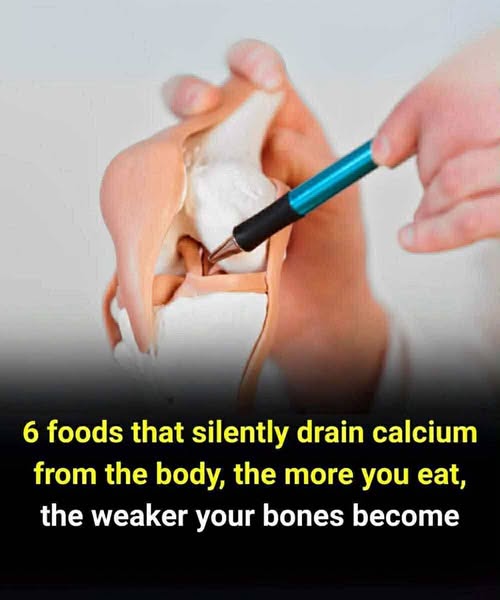✅ Better choice:
Use herbs and spices (garlic, turmeric, rosemary) for flavor
Choose low-sodium or no-salt-added versions of packaged foods
Cook more at home to control sodium levels
❌ 3. Excess Caffeine (Coffee, Tea, Energy Drinks)
Why it’s dangerous:
While moderate caffeine is generally safe, excessive intake (more than 400 mg per day — about 4 cups of coffee) can interfere with calcium absorption.
Caffeine:
Increases calcium excretion in urine
Slightly reduces calcium absorption in the gut
Can displace calcium-rich drinks like milk or fortified plant milks
Over time, this adds up — especially in people with low calcium intake.
✅ Better choice:
Limit coffee to 1–2 cups per day
Add a splash of fortified almond, soy, or dairy milk
Balance caffeine with calcium-rich foods (like yogurt or leafy greens)
❌ 4. Alcohol – The Bone-Building Blocker
Why it’s dangerous:
Heavy drinking (more than 2 drinks per day) harms bones in multiple ways:
Suppresses osteoblasts — the cells that build new bone
Reduces vitamin D levels, impairing calcium absorption
Increases cortisol, which breaks down bone
Raises fall risk, increasing fracture chances
Even moderate drinking can interfere with bone remodeling — the natural process of bone repair and renewal.
✅ Better choice:
Limit alcohol to 1 drink per day (women) or 2 (men)
Choose bone-supportive drinks like bone broth or calcium-fortified smoothies
❌ 5. Red Meat & Processed Meats – The Acid Load Problem
Why it’s dangerous:
Diets high in animal protein (especially red and processed meats like bacon, sausages, and hot dogs) increase acid load in the body.
To neutralize this acid, your body leaches calcium from bones — a survival mechanism that backfires over time.
Processed meats are doubly harmful due to their high sodium and preservatives.
✅ Better choice:
Replace some meat with plant-based proteins:
Beans
Lentils
Tofu
Nuts and seeds
Choose lean proteins like fish, poultry, or eggs in moderation
❌ 6. Spinach & Rhubarb (High in Oxalates) – The Calcium Binder
Why it’s dangerous:
While spinach and rhubarb are nutritious, they contain oxalates (or oxalic acid) — compounds that bind to calcium and prevent its absorption.
So even though spinach has calcium, your body can’t use most of it — up to 80% is blocked by oxalates.
This doesn’t mean you should avoid these foods — but don’t rely on them as your primary calcium source.
